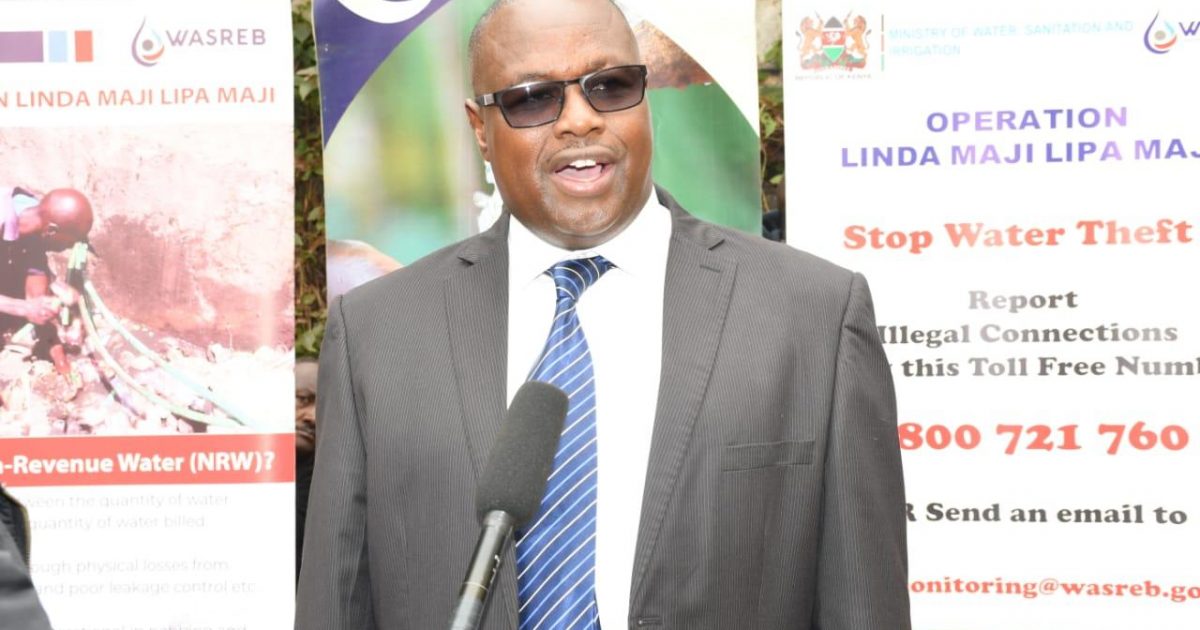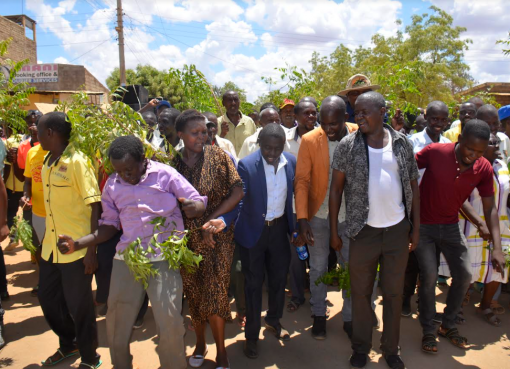The Ministry of Water and Sanitation has launched a campaign to raise public awareness about theft and vandalism of water and sanitation infrastructure in Kiambu County.
The nationwide operation is being implemented by the government agency Water Services Regulatory Board (WASREB), and it’s dubbed ‘Linda Maji, Lipa Maji’.
According to WASREB Manager James Nyutu, who led the campaign Wednesday, the operation started two months ago in Nairobi County and is being carried out in all 47 counties in conjunction with all stakeholders, including the nation and county governments.
“At least 45 percent of water produced by water companies is lost through theft, leakages and wastage, costing the country Sh 11.2 billion annually. In Kiambu alone, water loss is estimated at 34 percent, putting money lost at Sh 180 million every year,” said Nyutu.
Nyutu, who also launched a toll-free line meant to report illegal water connections and water system theft, emphasised that it is a right for every citizen to have access to clean water as given by the constitution.
“It is the responsibility of every citizen to stop water theft by reporting water theft incidences in your area; this will help reduce the amount of money the government loses due to illegal connections and renovations of vandalised water infrastructure” added Nyutu.
Kiambu Water and Sewerage Company (KIWASCO) chairman Boniface Mbugua urged both the National and County governments to allocate more funds for water to enable them give services to a larger percentage of people.
“KIWASCO is now supplying water to 70 percent of people in Kiambu County for 18 hours every day and also proving sewerage coverage at 16 percent; with better funding, this can significantly improve,” said Mbugua.
On his part, Kiambu County Director for Water Joseph Njuguna urged members of the public to take care of water and desist from cultivating along river banks and releasing harmful toxins into the water sources.
“Apart from climate change effects, we too have largely contributed to lowering of water levels in our rivers and dams by planting trees like eucalyptus, which have been proven to absorb lots of water,” said Njunguna.
The Campaign boosts the water and sanitation vision in Kenya of achieving 100 percent coverage of safe water supply and 100 percent access to basic sanitation services by 2030.
By Grace Naishoo




